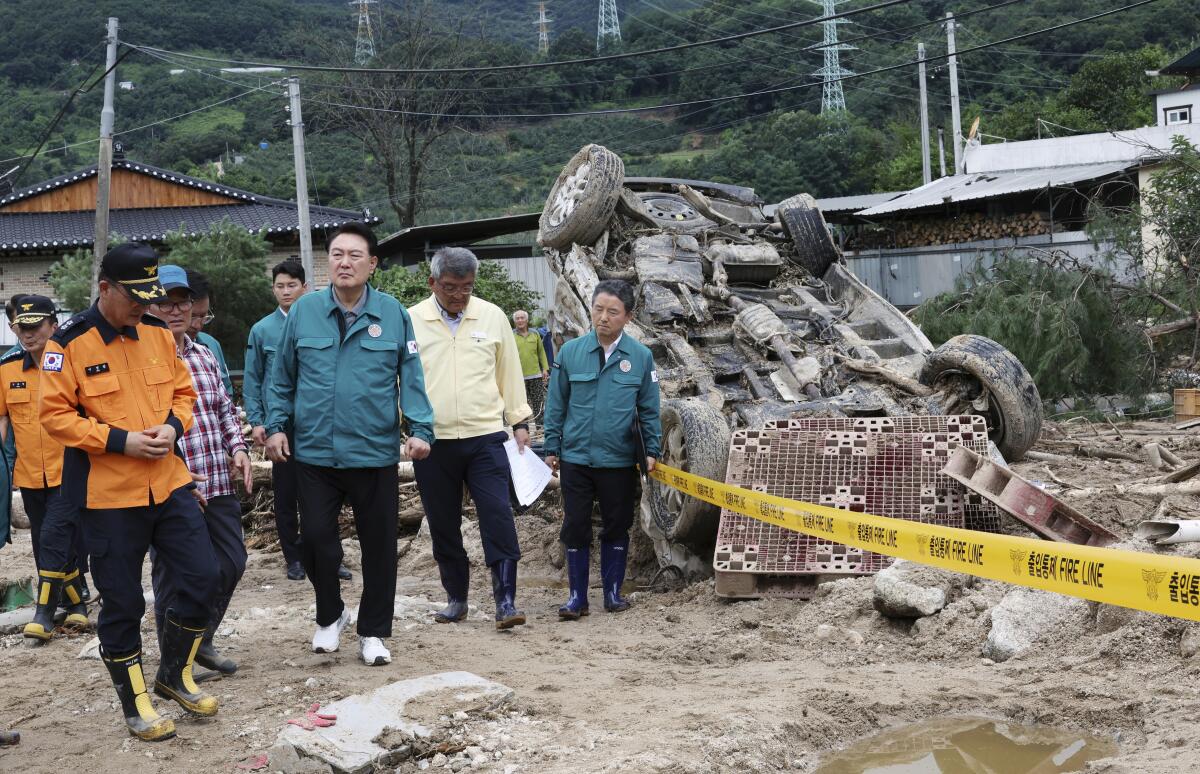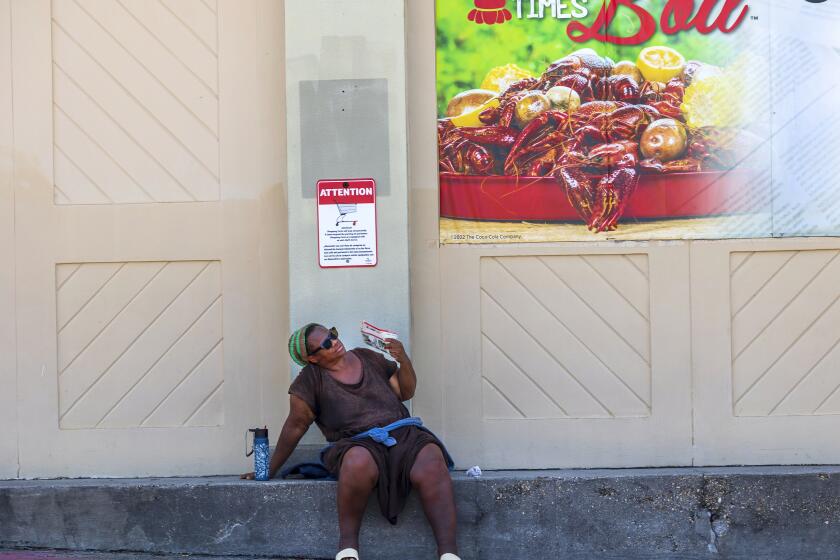Deaths from destructive storm in South Korea rise to 40 as survivor hunt continues

- Share via
SEOUL — Heavy downpours lashed South Korea for a ninth day Monday as rescue workers struggled to search for survivors in landslides, buckled homes and swamped vehicles in the most destructive storm to hit the country this year.
At least 40 people have died, 34 others have been injured and more than 10,000 people have had to evacuate from their homes since July 9, when heavy rain started pounding the country. The severest damage has been concentrated in South Korea’s central and southern regions.
In the central city of Cheongju, hundreds of rescue workers, including divers, continued to search for survivors in a muddy tunnel where about 15 vehicles, including a bus, got trapped in a flash flood that may have filled up the passageway within minutes Saturday evening.
The government has deployed nearly 900 rescue workers to the tunnel, where they have so far removed 13 bodies and rescued nine people who were treated for injuries. It wasn’t immediately clear how many people were in the submerged cars.
As of Monday afternoon, rescue workers had pumped out most of the water from the tunnel and were searching the site on foot, a day after they used rubber boats to move and transport bodies on stretchers.
Hundreds of emergency workers, soldiers and police were also looking for any survivors in the southeastern town of Yecheon, where at least nine people were dead and eight others listed as missing after landslides destroyed homes and buckled roads, the county office said.
Floods, fires, extreme heat, awful air quality, warming seas: As extreme weather engulfs the nation, the United States resembles a disaster movie set.
Photos from the scene showed fire and police officers using search dogs while wading through knee-high mud and debris from destroyed homes.
Nearly 200 homes and around 150 roads were damaged or destroyed across the country, while 28,607 people were without electricity over the last several days, the Ministry of the Interior and Safety said in a report.
Severe weather was also affecting many other places around the world. In the United States, an already saturated Northeast began drying out Monday after a second round of heavy rain in a week, including a flash flood in Pennsylvania that claimed at least five lives over the weekend.
Schools and the stock market were closed in Hong Kong on Monday as Typhoon Talim sideswiped the city and headed toward the Chinese mainland and the island province of Hainan.
This year has seen record-breaking stretches of high heat across large parts of China, South Korea and Japan. China’s National Meteorological Administration reported that temperatures in the oasis city of Turpan in the northwestern Xinjiang region hit a record 125.9 degrees Fahrenheit on Sunday.
Italian health officials intensified heat warnings as Southern Europe began a brutally hot week Monday with temperatures expected to top 104 degrees Fahrenheit on a continent already overburdened by tourists. The third heat wave in a month was expected to affect much of the Mediterranean and last until Wednesday.
In South Korea, the Korea Meteorological Administration maintained heavy rain warnings across large swaths of the country. Torrential rains were dumping up to 1.2 inches per hour in some southern areas. The office said the central and southern regions could still get as much as 7.9 inches of additional rain through Tuesday.
Returning from a trip to Europe, including Ukraine, South Korean President Yoon Suk-yeol held an emergency government meeting. He called for officials to designate the areas hit hardest as special disaster zones to help funnel more financial and logistical assistance into relief efforts.
Yoon later visited Yecheon, where he was briefed on the search-and-rescue efforts.
More to Read
Sign up for Essential California
The most important California stories and recommendations in your inbox every morning.
You may occasionally receive promotional content from the Los Angeles Times.













